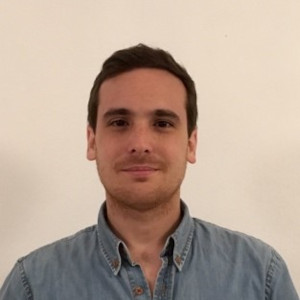Collection
Meta-Materials: Enabling Net-Zero Energy Transition and Carbon-Neutral Solutions
- Submission status
- Open
- Open for submission from
- 30 September 2023
- Submission deadline
- 31 December 2024
The rapid evolution of meta-materials has opened new avenues in the fields of materials science and engineering. This topical collection aims to explore the role of meta-materials in facilitating a net-zero energy transition and driving carbon-neutral solutions across diverse domains, including materials, devices, structures, and buildings.
We invite researchers, scientists, and engineers to contribute their novel research and insights to this topical collection. Submissions can encompass a wide range of themes, including but not limited to:
• Materials Innovation: i.e., manuscripts focusing on the development, fabrication, and characterization of novel meta-materials to enhance energy conversion, storage, and efficiency.
• Advanced Energy Devices: Contributions exploring the integration of meta-materials into energy harvesting, storage, and conversion devices (e.g., solar cells, batteries, and solar power plants).
• Building and Construction Solutions: Research highlighting on how meta-materials can revolutionize building insulation, energy-efficient design, and sustainable construction practices.
Topics of Interest Include:
• Meta-materials for enhanced solar energy capture and conversion.
• Energy storage systems based on meta-materials properties.
• Innovative applications of meta-materials in energy-efficient lighting and heating.
• Novel approaches to binding waste heat through meta-materials.
• Meta-materials for smart windows and energy-efficient building envelopes.
• Carbon capture, conversion and utilization using meta-materials-based technologies.
Keywords:Meta-Materials, Meta-Manipulations, Energy Conversion, Energy Storage, Energy Harvesting, Energy-Efficient Design, Meta-Materials in Construction, Waste Heat Utilization, Meta-Materials-Based Technologies, Meta-Buildings.
Editors
-
Antonio Caggiano
Dr. Antonio Caggiano, University of Genova, Italy. Dr. Antonio Caggiano is a senior researcher and lecturer in Structural Mechanics and Concrete at the DICCA Department, University of Genoa. Prior to joining UniGE, Dr. Caggiano worked as an adjunct professor at the University of Buenos Aires from 2014 to 2019 and was a distinguished researcher at the Argentine National Council of Scientific and Technical Research. In recognition of his outstanding research, he was awarded the prestigious postdoctoral fellowship of the Alexander von Humboldt Foundation in 2017 and subsequently became a "group leader" at TU-Darmstadt from 2019-2022.
-
Víctor Daniel Fachinotti
Dr. Víctor Daniel Fachinotti, National Council for Scientific and Technical Research of Argentina, Argentina Building Engineer from the National University of Technology, Argentina, 1996. Doctor in Engineering from the National University of the Littoral, Argentina, 2001. Postdoc at Center for Material Forming, School of Mines of Paris, France, 2001-2004. Researcher from the Argentinean Council for Scientific and Technical Research (CONICET) at the Research Center for Computational Methods, Argentina, started 2006, “Principal” since 2020. President of the Argentinean Association for Computational Mechanics since 2017.
-
Ignacio Peralta
Dr. Ignacio Peralta, TU Darmstadt, Germany / CIMEC (UNL/CONICET), Argentina He is a research assistant at the Technical University Darmstadt in Germany, and a postdoctoral researcher at the National Scientific and Technical Research Council of Argentina. His research focus on the computational design of materials, where he implemented an optimization methodology to design metamaterials and meta devices for heat flux manipulations, achieving devices for cloaking and heat flux concentration. Presently, he is working on the computational design/modeling of highly insulation cement-based materials for building envelopes.
-
Bruno A. Storti
Dr. Bruno A. Storti, Nantes University, France He is a postdoctoral researcher at the Laboratory of Thermal Science and Energy at the University of Nantes in France. In his postdoctoral studies, he furthered his expertise by working on metadevice design for thermal manipulation, experimental characterization of thermophysical properties of high performance materials, and numerical modeling and optimization of heat exchangers. Currently, he is dedicated to the development and improvement of conductive-radiative heat transfer solvers, with a focus on enhancing energy efficiency in industrial processes.





